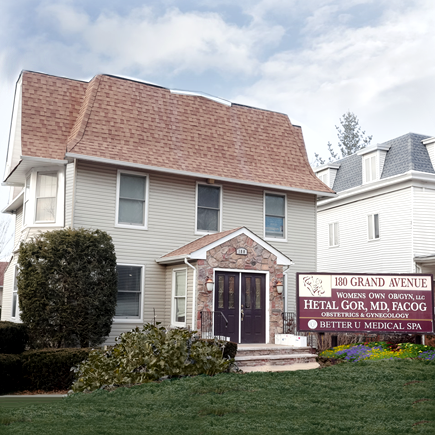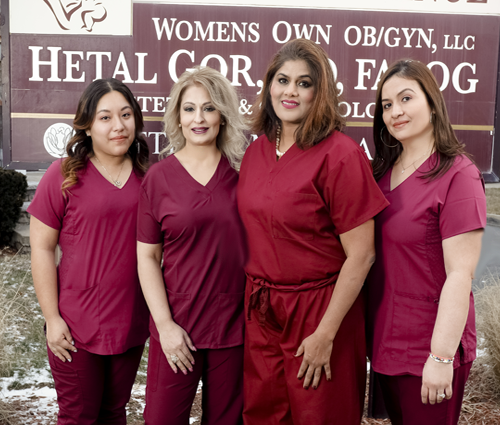Ovarian Cysts
Ovarian cysts are fluid-filled sacs or pockets that occur in or on the ovary. Many ovarian cysts are painless and harmless, and typically disappear without treatment. Most ovarian cysts are benign (noncancerous) but cystic ovarian masses that develop after menopause can be cancerous (malignant). When an ovarian cyst becomes large or ruptures, serious complications can ensue including, severe pain, infection and toxic shock. For this reason it is important to have annual pelvic exams, and to see a gynecologist if you have symptoms of ovarian cysts.
Many women experience ovarian cysts during their lifetime without incident, but if you have ones that rupture or cause serious pelvic pain, they need treatment. Schedule an appointment at Womens Own Ob/Gyn in Englewood, New Jersey to diagnose and treat painful ovarian cysts. Dr. Hetal Gor will help determine the appropriate course of treatment to ease symptoms and preserve your reproductive health.
Ovarian Cyst FAQs
What is an ovarian cyst?
Ovaries are almond-sized organs present on either side of your uterus. They’re where eggs develop and mature so that they may be released monthly for potential fertilization and childbearing.
Ovarian cysts develop on the surface of these organs. They’re little pockets filled with fluid. Usually, they appear and disappear on their own with no notable symptoms or complications.
When should I be concerned about ovarian cysts?
You probably won’t know you have a ovarian cysts unless they rupture or grow exceptionally large. Large cysts can irritate your bladder and make you urinate more often. Other symptoms include:
- A dull, radiating ache that flows through your lower back and thighs;
- Pelvic pain just before your period begins and right after it ends;
- Pelvic pain felt during sexual intercourse;
- Pain during bowel movements;
- Nausea, vomiting, fullness in your abdomen, and breast tenderness.
Most cysts form as a result of your natural cycle and hormone release. These are called functional cysts. Some cysts, however, rupture and may cause serious internal bleeding. Others can twist your ovaries out of their normal position, causing pain.
Dermoid cysts, cystadenomas cysts, and endometriomas cysts are other types of cysts that are not part of your normal cycle, so they aren’t functional. These may be detected during a routine pelvic exam or because they cause some of the aforementioned symptoms.
What treatments are available?
Some cysts don’t necessarily need treatment, but Dr. Gor keeps an eye on them to make sure they disappear on their own. In other cases, oral birth control pills can help regulate your hormones so you’re less prone to developing them in the future. Surgery to remove cysts may be recommended if they’re especially large, don’t seem functional, keep growing, or don’t disappear after 2-3 menstrual cycles. Painful cysts may also be extracted surgically.
Sometimes, a cyst can be removed without having to extract the entire ovary. In other cases, 1 functioning ovary will be left when the other is extracted. Cancerous cysts usually call for a total hysterectomy, as well as removal of both ovaries, the fallopian tubes and your uterus.












